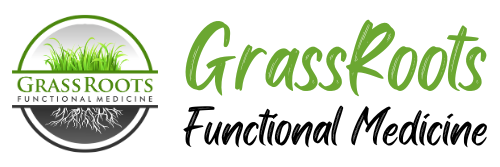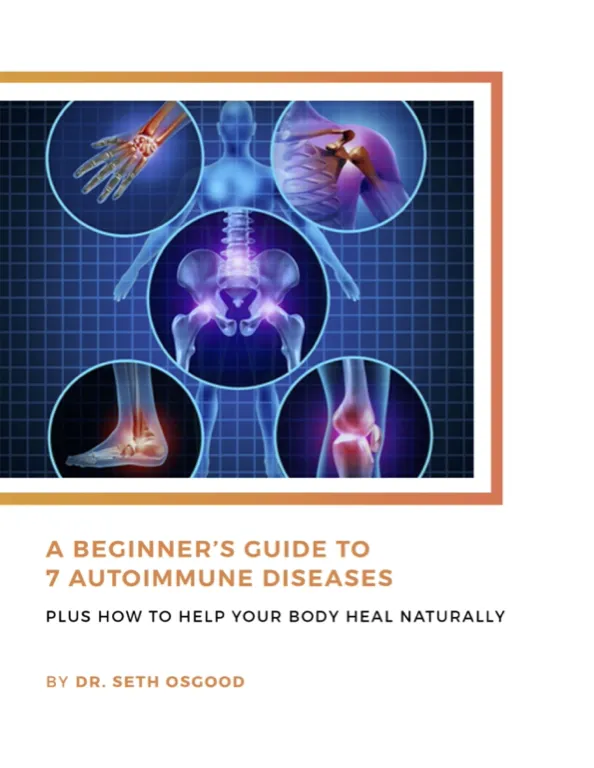Dietary recommendations for heart health have been all over the place in the last 25 years.
First, cholesterol was bad, so we threw away our eggs. Then fat was bad and grains were good, so we stocked up on oatmeal. Then only certain fats were bad, so we loaded up on nuts but stayed away from steak.
And now…well you may not know what the recommendations are now because they’re so hard to keep up with. I don’t blame you! There is a lot of confusion on this topic and very few of the recommendations you see on commercials are backed by actual research.
Meanwhile, heart disease is the leading cause of death in the US and kills 1 every 4 Americans. It’s more important than ever to have concrete, evidence-based guidance to reduce your risk.
As always, I like to look at what the scientific literature says, what makes sense from a functional approach, and what I have seen work for real patients. Here’s what to consider when it comes to diet and your cardiovascular health.
Dietary Cholesterol Has Little Impact on Heart Health
Cholesterol is an important and necessary substance for your health. It’s required for optimal nerve and cell function, and helps make hormones, bile acid, and energy. The problem arises when there are too many of the problematic types and sizes of cholesterol particles.
However, the cholesterol that you eat is not well absorbed by your body and has very little effect on blood cholesterol levels. The cholesterol in your blood is primarily produced by your liver. This is backed up by extensive research.
- Numerous studies show dietary cholesterol is not associated with an increased risk for heart disease.
- Eggs, a high cholesterol food, have been exhaustively studied and have never been linked to higher rates of heart disease.
- In a minority of people known as “hyper-responders”, eating more cholesterol does lead to a modest increase in blood levels of cholesterol. But even this has not been shown to increase the risk for heart disease.
So enjoy your eggs, grass-fed beef, shellfish, and fish oil without worry!
Fat Matters, But Not in the Way You Think
By now you’ve likely heard that early recommendations got it wrong and not all fat is bad. Current guidelines say there are healthy fats that we should eat (like those found in avocado, salmon, and nuts) and there are unhealthy fats (like saturated fat from animal products) that we should avoid. This is closer to the mark, but still not quite right.
There are bad fats, but saturated fat isn’t the one to worry about.
Experts previously hypothesized that saturated fat increased the risk of heart disease by raising bad (LDL) cholesterol. Decades of research have found this not to be the case.
- A large meta-analysis that looked at nearly 350,000 participants found no association between saturated fat and rates of heart disease.
- Another study found people who consumed more saturated fat weren’t more likely to experience heart disease, stroke, or death from any cause, compared with those who ate less saturated fat.
- Yet another found that people who decreased their saturated fat intake were no less likely to die from heart attack, stroke, or other forms of heart disease, unless they replaced them with polyunsaturated fat.
On the other hand, trans fats have been shown to increase bad cholesterol while also lowering good cholesterol by as much as 20%. They are typically found in fried foods, packaged baked goods, margarine, and any products with “partially hydrogenated oil” as an ingredient and should be avoided.
Also avoid oils with a high Omega 6 to Omega 3 ratio, including soybean, corn, sunflower, peanut, and cottonseed oils, as they are linked to oxidative stress.
Sugar Does Increase Your Risk for Heart Disease
Sugar is a primary energy source and it plays a necessary role in your body. However, when it comes to sugar, you can absolutely have too much of a good thing!
Sugar is highly inflammatory, and like all chronic disease, heart disease is driven by chronic inflammation. Excess sugar consumption also leads to elevated blood sugar, insulin resistance, and diabetes. These are associated with increased blood clotting, inflammation, oxidative stress, problematic cholesterol particles, and endothelial dysfunction, all of which contribute to heart disease.
- A landmark study that measured sugar intake and health outcomes over 15 years found adults who consumed 17% to 21% of their calories from added sugar had a 38% higher risk of dying from cardiovascular disease.
- A 2020 study estimates women who consume one sugary drink per day have a 20% higher risk of heart disease.
One study author summarized it bluntly, “Basically, the higher the intake of added sugar, the higher the risk for heart disease”.
To reduce your risk of heart disease, diabetes, insulin resistance, and a number of other issues, try to consume sugar in its most natural form (fruits and vegetables) and always pair it with a protein and fat to minimize the impact on your blood sugar. Keep in mind that foods like bread, rice, and pasta are converted into sugar by your body too!
Looking at the Bigger Picture
Diet is undoubtedly important when it comes to heart disease. However, we are not robots. Our bodies are made up of complex and dynamic systems. It’s not just a matter of sugar + bad fat = heart disease.
There are a LOT of other factors involved. Nutrient levels, genetics, types of cholesterol, inflammation and oxidative stress all play a part. Two patients may have the exact same diet and one will develop heart disease while the other will not because of the interplay between these factors.
This is why it’s critical to take a whole-body approach.
3 Steps to Lower Your Risk for Heart Disease
1. Get the right comprehensive testing.
Testing lets you know where you’re starting from and can identify warning signs early. I like to look at blood sugar, type and size of cholesterol particles, inflammation levels, oxidative stress markers, and nutrient levels, such as amino acids, antioxidants, and minerals like magnesium, potassium, and calcium.
You can find the full list of lab tests I use to assess patients’ risk for heart disease in this free guide.
2. Analyze and Optimize your Diet.
Using the guidance in this article, review your typical diet and see how it stacks up against the recommendations.
Are you eating protein, fat, and carbohydrates at every meal? What kind of oil do you cook with? Do you consume primarily complex carbohydrates, such as sweet potatoes and whole fruit, or simple carbs like white bread and juice?
Identify changes you can make and take it one step at a time. The goal is to create a sustainable lifestyle, not a temporary health blitz that ends after two weeks with your fridge full of slimy greens.
3. Examine Your Lifestyle.
How much sleep are you getting each night? How often do you exercise and for how long and what kind? What are your stress levels like and do you practice stress relief activities regularly? These are all important factors to prioritize.
This isn’t a quick-fix or pop-a-pill solution. This type of functional approach takes time, dedication, and hard work. However, consider the risks of doing nothing. Heart disease is almost entirely preventable, there’s no need to fall prey to this silent killer!
If you’re interested in this type of hands-on, comprehensive approach, check out our Adaptation Programs. We have an expert team to guide you, listen to you, and keep you accountable so you can enjoy optimal health for years to come.
About the Author: Dr. Seth Osgood is a Doctor of Nursing Practice, Board Certified Family Nurse Practitioner and Institute of Functional Medicine (IFM) Certified Practitioner. Dr. Osgood received his post-graduate training in Functional Medicine through the IFM and from working with Dr. Amy Myers. He has helped people from around the world improve their health utilizing a Functional Medicine approach.
Want to work with Dr. Osgood and the GrassRoots team? Become a patient in our West Lebanon, New Hampshire Functional Medicine clinic, our Burlington, Vermont Functional Medicine clinic, or our Austin, Texas Functional Medicine clinic!





